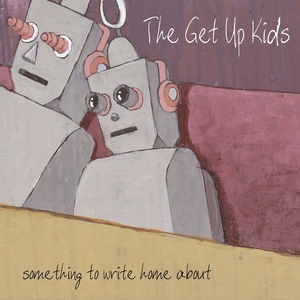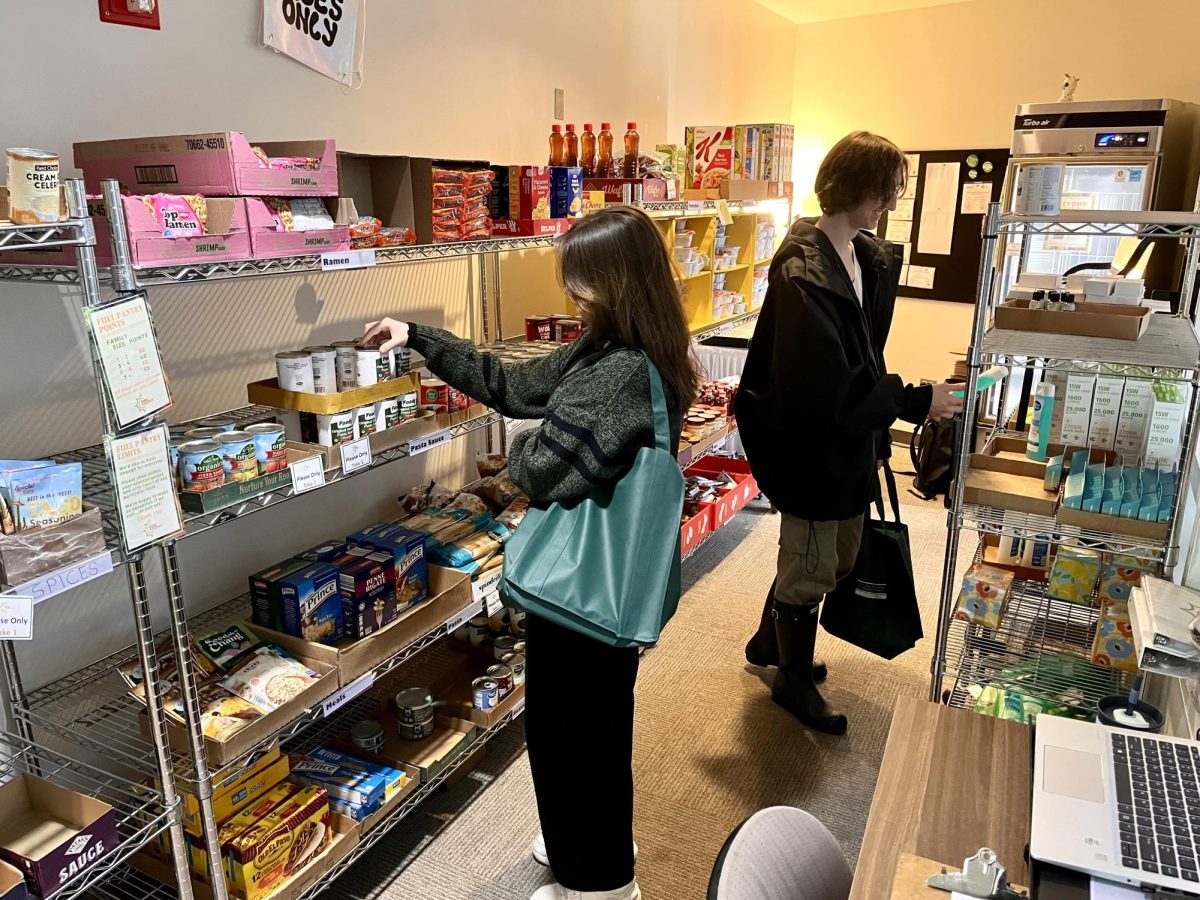Killer Klassix; “Something to Write Home About”
Through melodies, experimental harmonies and heart-like rhythms, “Something To Write Home About” established the foundation for the following 20 years of an entire musical genre, including offshoots.

October 31, 2022
In a culture obsessed with capturing the essence of nostalgia, particularly the transition from teenager to adult, Kansas natives, The Get Up Kids, wrote an emotionally omnipresent album encompassing the struggles, memories, and emotions tied to personal and emotional maturation. Through melodies, experimental harmonies and heart-like rhythms, “Something To Write Home About” established the foundation for the following 20 years of an entire musical genre, including offshoots.
The Get Up Kids released the quintessential emo album “Something To Write Home About” on Sept. 28, 1999 to expand their songwriting to a greater audience. Coincidently, the album also garnered more attention for what would become one of the most influential punk labels of the early 2000s, Vagrant Records.
The album was an immediate success from release and not only was responsible for catapulting the band into many tours, including the now defunct (controversial) Vans Warped Tour, but popularized the emo genre as a whole. “Something To Write Home About” laid the musical foundation for the following 20 years of punk and emo music while remaining lyrically relevant in regards to professional, romantic and platonic relationships.
In an Interview in 2009 with Alternative/Hardcore music outlet, Alternative Press, The Get Up Kids’ lyricist and vocalist, Matt Pryor, and keyboardist, James Dewees, break down the development of the album, citing multiple altercations and infighting within the band on tours. Pryor even said the inability to get along with bandmates had him considering leaving the band.
With the classic drive down the guitar, “Holliday” immediately envelopes the listener in the initial melody, led by chugging guitars, pop-influenced keys, and melodious rhythms, which serve as the emotional heartbeat for the entire 12-song album. Pryor’s vocals are one of the highlights of the album. While at first a bit startling, they exhibit the band’s accessible sound as his voice is layered in a way to use his vocal rasp to emote the growing pains of the Midwest.
Pryor wails, “What became of everything I used to know,” as an impassioned plea for youthful preservation and search for stability in the fast-paced transition into adulthood. Pryor’s lyrics hold someone from his past in reverence for being the physical embodiment of their entire youth. Conversely, the person who is representative of youthful memory (to Pryor) not only denounces youth but has trouble remembering even being young, therefore breaking the illusion and highlighting the insignificance of what experiences one might have had growing up. Sometimes growing up means we have to let go of ideals that seem socially childish. One can only move forward by focusing on what is ahead in the road, and if we dwell too much on the past, we get lost in the nostalgia and lose all potential progress.
“Action and Action” is the second song and single to come off of “Something To Write Home About” and highlights another story of how friends can often be the best enemies. The song incorporates the story into the actual song structure. The guitars bitterly and beautifully compliment Pryor’s voice while Dewees uses the harmony on keys to contrast Pryor’s voice, essentially creating a call-response altercation between friends. The lyrics highlight how two individuals, though complementary, can no longer continue to be friends. Accompanied by the structure and even the musical applications, denoting the friction in a fracturing friendship and how what was once beautiful has decayed into pain and agony.
Both “Valentine” and “Out of Reach” also explore relationships that were once strong and pivotal in life but have since soured. “Valentine” is a slowed down, pain-driven song of a relationship, lost in the midst of distance, both physical and mental. “Out Of Reach,” according to Pryor and Dewees, was about making a professional decision in which an individual the band loved and was close to, had to be excluded from any activities personally and professionally.
However, just because the songs have similar meaning does not mean they are the same by any means. “Valentine” tells the story of a couple on the brink of separation, futilely attempting to mend their relationship with empty promises, passive aggressive behaviors, and little to ultimately remain together for. Pryor’s initial verse states, “Your good intentions count for/ little anymore/ If you’re sorry, why wage war?” The lyric highlights the hallmark of a failing relationship, contradicting accepting responsibility for a mistake while initiating another verbal altercation. Meanwhile, “Out Of Reach” brilliantly deviates from these feelings entirely, emoting whatever friction materialized between two friends. Even in the interview with AltPress, Pryor and Dewess are reluctant to give any specific evidence highlighting the individual in question or their actions simply stating, “yeah, it is what it is…”
“The Company Dime” and “My Apology” are my personal favorites and assume a call-response structure.
“The Company Dime” is about how the band left Doghouse records, a small, independent music label that backed them since conception and enabled them to garner an underground following, switching to a larger record label that promised them the fame they sought out to achieve as a young band.
However, this fame did not come without difficulties. The song itself talks about breaking long-developed ties and moving on to something bigger, unknowing of the trouble that lay ahead for the band and the sacrifices necessary for bands like The Get Up Kids to exist with mainstream popularity (for its time). Pryor’s lyrics meld the songs together.
While the initial mistake is made in “The Company Dime,” “My Apology” deals with the ramifications of broken ties. The song speaks to the possibility of starting relationships and weighing whether a relationship is worth apologizing over. What I personally love is the humiliated apology emoted by the song and how human the lyrics are. Pryor’s chorus repeats, “I’m still waiting for/ You to get over this,” continuously repeating as a harmonic mantra and playing over much like the mind repeats scenarios of our past. When this track overcomes the listener, you are really left wondering what burnt bridges are worth rebuilding.
The weight this album carries is more than just a staple in the early development of emo music, but it provided influential material for so many other bands. The impact of the record requires some context.
In the mid 1990s, early emo pioneers such as Jawbreaker, The Promise Ring, Weezer, and emo/punk legends, JimmyEatWorld, were all looking for their big break (and coincidentally playing shows together on rainy Tuesday nights). While the results of the Midwestern emo movement were dramatic, it its glory.
To this day, there are bands who will cite the album as not only musical influence, but for its lyrical relativity acting as an omnipresent emotional pillar. It is one of the albums I will cite as a touchstone for emotional writing and an album I associate with the pivotal stages of maturation in the Midwest. “Something To Write Home About” acts as one of the conduits to my maturation.
5/5



















